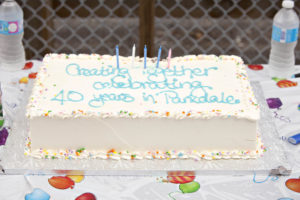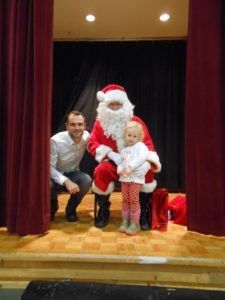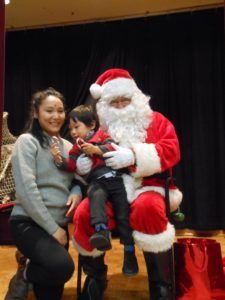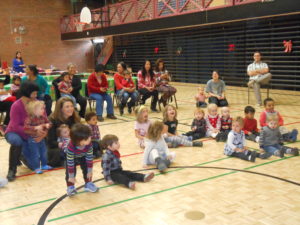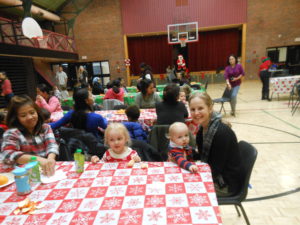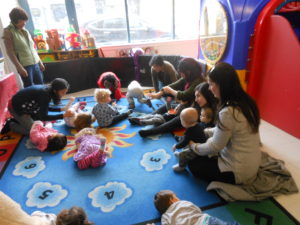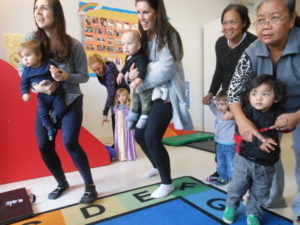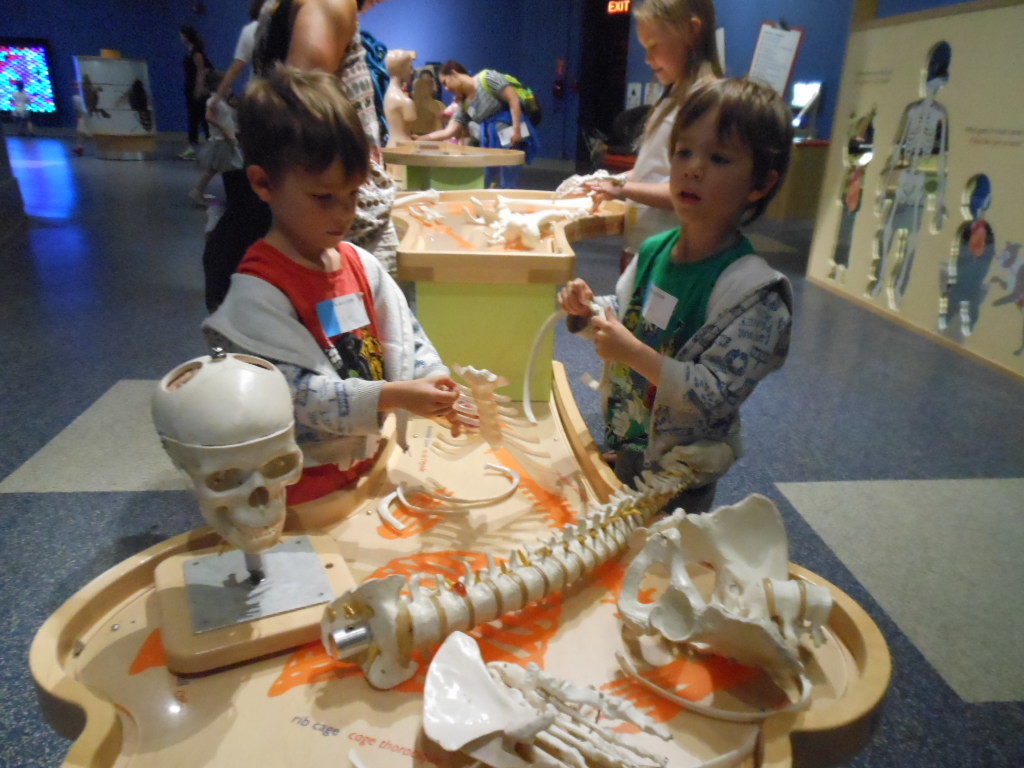
Pablo Picasso once said that “Every child is an artist. The problem is how to remain an artist once we grow up.” In an article in Wired Magazine, they presented the idea that the same can be said about children and science, because of how they learn through curiosity and play – and how that innate curiosity can easily be lost as they age.
There is a growing understanding and recognition of the power of children’s early thinking and learning as well as a belief that science may be a particularly important domain in early childhood, serving not only to build a basis for future scientific understanding but also to build important skills and attitudes for learning (K. Worth, 2010).
So how can parents, teachers, and caregivers navigate the fine line between giving kids a taste of fact & knowledge, while also creating a sense of ambiguity and uncertainty? Jonah Leher suggests “When we explain things to kids, we shouldn’t pretend that we have all the answers. We shouldn’t turn science class into a dry recitation of facts that must be memorized, or only conduct experiments in the classroom in which the results are known in advance. Because it’s the not knowing – that tang of doubt and possibility – that keeps us playing with the world, eager to figure out how it works”.
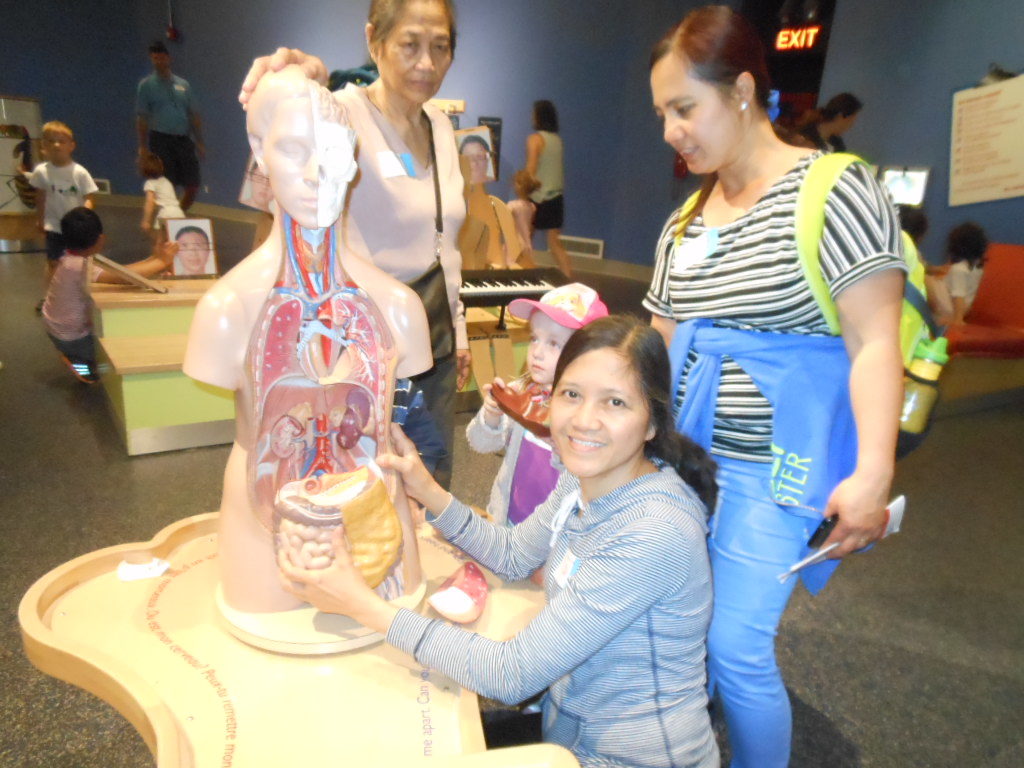
So if you’re ready to take this further, you’d be happy to know that Toronto has some great programs available. Let’s take a look!
This award-winning, Canadian, charitable organization is focused on education and outreach to support youth development. They create and deliver unique learning programs and services that engage children, youth and educators in science, technology, engineering and mathematics (STEM). They are passionate about promoting “science literacy” because doing science develops our ability to ask questions, collect information, organize and test our ideas, problem-solve and apply what we learn. It also offers a powerful platform for building confidence, developing communication skills and making sense of the world around us – a world that is increasingly shaped by science and technology.
They create, test and deliver free curriculum-aligned workshops for children and youth ages 3-17. For a list of sample workshops, check out our hands-on/minds-on workshops. If you’re interested in a specific topic, contact your local outreach site and they’ll work with you to fit the your class or group’s needs.
Based on Toronto, the Science Centre is the public centre for innovative thinking and discussion around science and technology, inspiring a lifelong journey of curiosity, discovery and action to create a better future for the planet. Their purpose is to delight, inform and challenge the communities they serve. They enrich people’s lives and their understanding through engagement with science of local, national and global relevance. If you can afford it, a yearly membership starts at $125 (2 adults and 2 children for the year).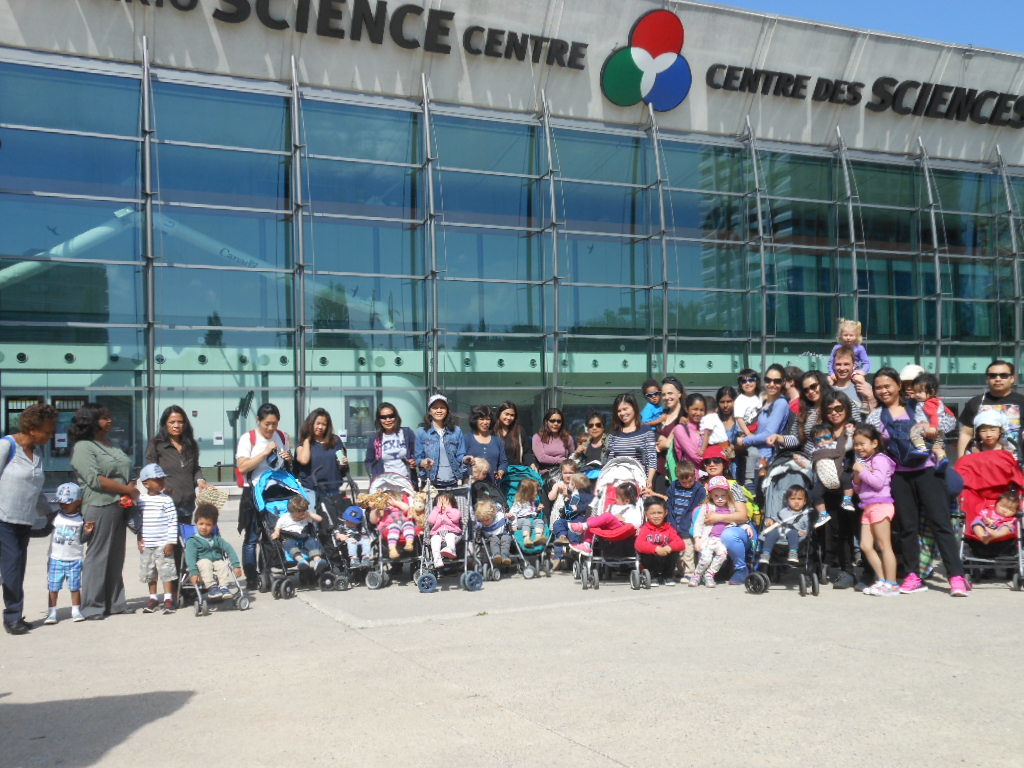
If the cost of entry for the Science Centre is too high for you, consider an early Saturday morning line-up at our local Parkdale Library. Although the library doesn’t open until 9am, the line-up usually starts between 6am-7am on a Saturday morning because of all the free family admission passes they provide the community. The Ontario Science Centre is one of many passes they have available, and allows 2 adults and up to 4 children entry. You might also consider a pass to the Royal Ontario Museum for some science discovery. Don’t forget to make sure your library card is up to date and all fines are paid before you go!
This was Toronto’s only children’s museum, designed and staffed by a team of early childhood development professionals for kids aged 0 to 6 years to play, create, get messy, explore and use their imagination. Although their pilot program is over and their test location is now closed, this wonderful program has decided to launch a fundraising campaign to create a permanent location. To buy a brick and support their initiative, go here: http://www.childrensdiscoverycentre.com/support-us/

 on May 19th Creating Together families and caregivers enjoyed an exciting trip out to the Parkdale Fire Station on Lansdowne Avenue. The kids enjoyed meeting the firefighters, and learning about fire safety. As always, the staff at our local fire station were great with the kids, and a great time was had by all.
on May 19th Creating Together families and caregivers enjoyed an exciting trip out to the Parkdale Fire Station on Lansdowne Avenue. The kids enjoyed meeting the firefighters, and learning about fire safety. As always, the staff at our local fire station were great with the kids, and a great time was had by all.